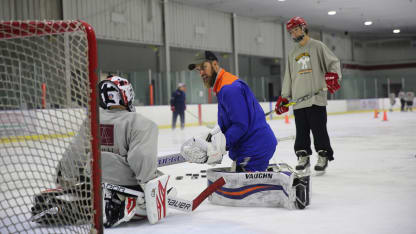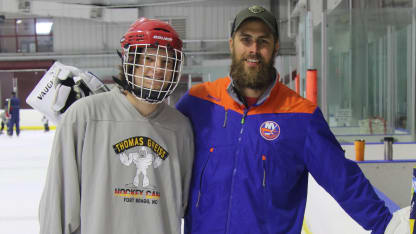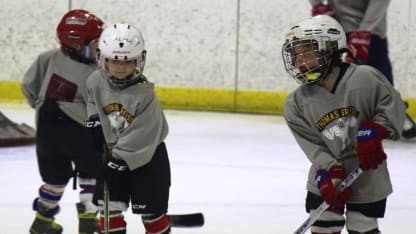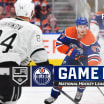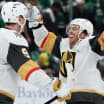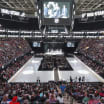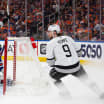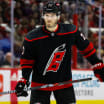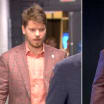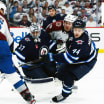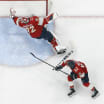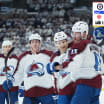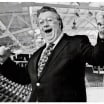"The fathers and mothers of our kids are gone a lot, so hockey fills that role for these kids, whether it's a hockey coach that's acting as a father or mother," Adams said. "It provides a healthy outlet for some of those feelings a kid may not necessarily understand. It also provides the opportunity to put the them on the ice for an hour and a half and decompress a little bit."
Caleb Ivers, 9, has played hockey for four years. As he came off the ice, his mother, Samantha, sat down next to him and unsnapped his chin strap.
"We don't have the opportunities to go a lot of places right now because my husband (Master Sgt. Alan Ivers) is deployed," Samantha said. "I have the kids by myself. Acknowledging that these kids are a little bit different, it makes this a big deal."
Greiss agreed that military families deserve special attention.
"I do it just to give back," Greiss said. "Politics is one side, but [the families] make a huge commitment for the whole country that is very appreciated. Also, the people are great to work with, all the families, all the kids. Everybody is helping out and chipping in. It's a great experience."
Enlisting the help of others is a way of life for military families. Col. Brad Moses is a proud hockey dad and the United States Army Special Operations Command Chief of Staff. He has spent long stretches apart from his 16-year-old son, Lucas, who has played hockey for 11 years.
"I have 66 months' worth of combat deployment time," Moses said. "Some of those life lessons about hard work, a positive mental attitude, applying yourself, teamwork ... Thomas will certainly share those messages while he's here this week."
No one at the rink had more going on than Kristen Ralston. She has four kids on the ice this week and a 3-year-old daughter who will be in skates soon enough. Her husband, Maj. Mark Ralston, recently returned from his third deployment, one that came at a cost.
